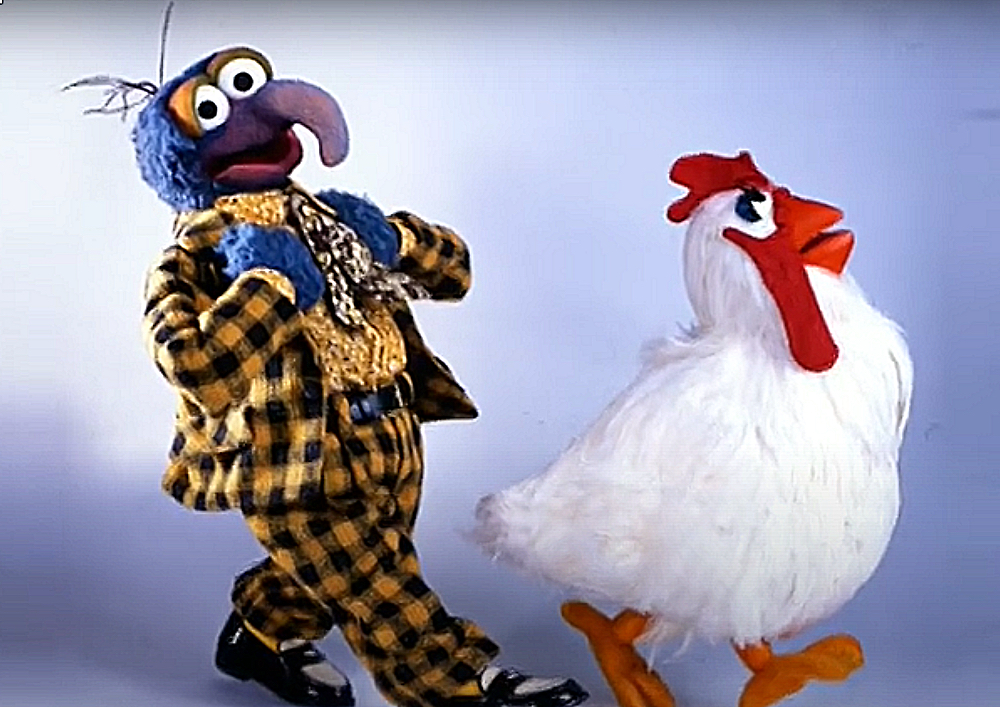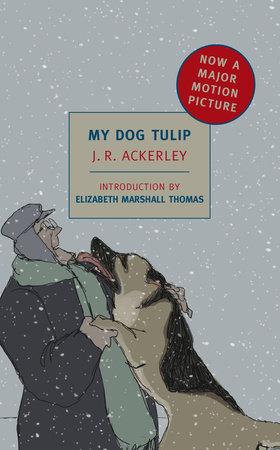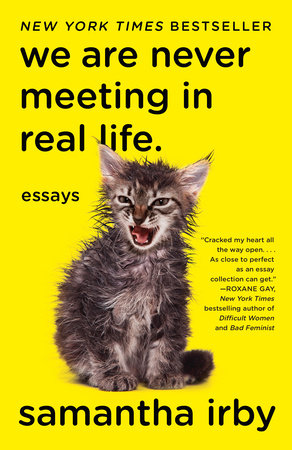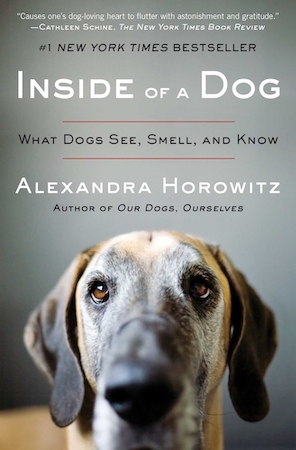Find the perfect gift for the writer or reader in your life in our online store. Take 20% your entire order with the code STAYHOME2020, now through Christmas!
Apologies, but I have to begin my introduction to this list of books by briefly mentioning my own book; shout your aggrievance about this to the heavens if you must.
Writing my book, which is a hybrid of memoir and reporting about my dog, was difficult for me at times, because I’m not used to writing about myself, and it frankly makes me somewhat uncomfortable. But one thought brought me through it: the hope that readers would sometimes see themselves in my peculiarities, rather than see me. That they might also feel weird about throwing away their dog’s fallen whiskers, or that they might also sing to their dog about the fact that it is dinnertime, or that they might also look at their dog and cry because oh my god they love him so much, or that they also wonder whether or not they have dog hair in their lungs. My hope was that anyone reading it will, at least at points, think: That’s me, too.
This is one of my favorite reading-related feelings; that I am not alone in an odd or seemingly “dumb” question, or a peculiar way of thinking. Below is a collection that made me feel that way, that’s me, too, for various different reasons.
My Dog Tulip by J.R. Ackerley
J.R. Ackerley’s book-length love letter to his dog is a relief to me, and I assume, to all of us who love our dogs with a passion that could inspire an entire memoir. I can’t read this book in public because there are too many moments that remind me too intensely of my own devotion to my dog, and prompt tears. The first one comes near the memoir’s start, after Ackerley’s recalls accidentally being bitten by his dog (she was going for an apple) and his dog’s subsequent apology-like reaction: “…later on, when she saw the bandage on my hand, she put herself in the corner, the darkest corner of the bedroom, and stayed there for the rest of the afternoon. One can’t do more than that.” Gaaah. You see what I mean?
Spook: Science Tackles the Afterlife by Mary Roach
All of Mary Roach’s books are exactly what I want all of the time: intense deep dives into either arcane or seemingly un-arcane, but actually, when you think about it, also arcane topics. Cadavers, eating, ghosts, sex. Spook explores every question that might arise in your mind when contemplating the possibility of an afterlife, which I do often, and many you didn’t even know you should be thinking about—specifically, in that case, how a “vaginally extruded ectoplasm,” revealed during an infamous seance of the 1920s, might have gotten to its hiding place. (“In other words—please forgive me—she stuck it up there, and then she pulled it out,” Roach writes, paraphrasing a Harvard professor on the subject.) Roach always allows you to feel the excitement of sharing an odd question, and the greater excitement of reading about how she actually went to great lengths to figure it out. A true joy.
We Are Never Meeting in Real Life. by Samatha Irby
Irby’s writing is consistently brilliant and touching and vulnerable and hilarious, and I just love it so much. And like a lot of great humor, her writing allows you to indulge in human truths about yourself that you may not feel comfortable admitting otherwise, or human truths that she describes with such amusing and perceptive detail that you unconsciously attribute them to yourself, too, even though that is not always accurate, and you are not actually like that, and you are just reading something that is funny. I think about the Bachelorette application that opens We Are Never Meeting in Real Life. all the time. “Do you have any children? I’m counting the cat here. So, yes.” “Do you have any pets? I HAVE A CAT-CHILD NAMED HELEN KELLER; I believe we’ve been over this already.”
If Our Bodies Could Talk: Operating and Maintaining a Human Body by James Hamblin
If Our Bodies Could Talk is essentially a list of all of the questions you are embarrassed about having because you assume that probably everyone else already knows the answers and you are a fool and should probably just keep your mouth shut. It turns out that is not entirely true! There are at least a handful of other people who have these questions—like the first one, “If I lose a contact lens in my eye, can it get into my brain?” (answer: no)—and James Hamblin is here to answer them all for us, patiently and with good humor. With every page you’re like, “Oh my god—I thought I was the only one who did not know how my heart knows to beat?” You weren’t. And now you do know, because of the book. Thank you, James Hamblin.
Inside of a Dog: What Dogs See, Smell, and Know by Alexandra Horowitz
I believe there is no way to share your life with a dog without thinking, multiple times per day, “why is my dog doing this and, if I knew why, would I be able to use that knowledge to give him a better life, please, oh god, all I want to do is make him happy?” Alexandra Horowitz knows why and, luckily, she has written several books to enlighten us. She also gives permission, and direction, for what might seem to some like indulgence. I often like to let my dog linger on walks, stopping at every spot he might want to sniff. This can be an annoyance to anyone walking with me, or behind me, but I have always felt it was better to let him enjoy the sniffing, as it seems to be his favorite activity. Horowitz agrees. “Since I’ve begun to appreciate Pump’s smelly world I sometimes take her out just to sit and sniff,” she writes. “We have smell-walks, stopping at every landmark along our routes in which she shows an interest. She is looking; being outside is the most smelly, wonderful part of her day.” So, there you have it. At the instruction of Alexandra Horowitz, everyone else just needs to wait.
Wigfield: The Can-Do Town That Just May Not by Amy Sedaris, Paul Dinello, and Stephen Colbert
This book did nothing less than change my entire life. Reading it felt like someone was seeing into my mind and assuring me that the exact things that I felt were funny, the exact way of phrasing, the exact level of silliness, could exist in reality as a work of fiction to be enjoyed by all of the like-minded, of which presumably there were some. Every sentence of this book is hilarious, in a genuine, laugh-out-loud, read-it-aloud-to-whomever-is-near-you, sort of way. No space is wasted. It is a miracle, particularly for those of us who think so.
If on a Winter’s Night a Traveler by Italo Calvino
Direct addresses to the reader are not always pleasing, but every time I read this novel I am immediately stunned by direct-address-related pleasure. The first pages—instructions for how best to enjoy reading the novel (“Try to foresee now everything that might make you interrupt your reading. Cigarettes within reach, if you smoke, and the ashtray. Anything else? Do you have to pee? All right, you know best.”) and then a lengthy sidebar on how the reader might have come across the novel in the first place—immediately make one feel seen to the point of insecurity. Oh god, how does he know? Is he here? Can he see me? This energy, which moves the rest of the novel along briskly, (though it’s not always in the second person), feels specifically designed for you, the individual reader, as if it were tailored to your expect specifications. (Here by “you” I mean me, but I do predict that I also mean you.) Here I am, you (I) think, the exact audience for this book.








